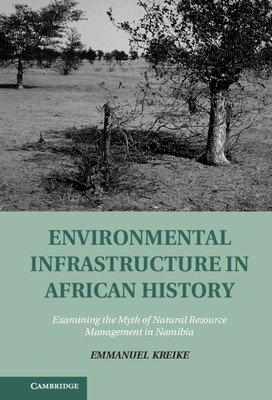
- We will send in 10–14 business days.
- Author: Emmanuel Kreike
- Publisher: Cambridge University Press
- ISBN-10: 110700151X
- ISBN-13: 9781107001510
- Format: 16 x 23.9 x 3.8 cm, kieti viršeliai
- Language: English
- SAVE -10% with code: EXTRA
Reviews
Description
Environmental Infrastructure in African History offers a new approach for analyzing and narrating environmental change. Environmental change conventionally is understood as occurring in a linear fashion, moving from a state of more nature to a state of less nature and more culture. In this model, non-Western and premodern societies live off natural resources, whereas more modern societies rely on artifact, or nature that is transformed and domesticated through science and technology into culture. In contrast, Emmanuel Kreike argues that both non-Western and premodern societies inhabit a dynamic middle ground between nature and culture. He asserts that humans- in collaboration with plants, animals, and other animate and inanimate forces - create environmental infrastructure that constantly is remade and reimagined in the face of ongoing processes of change.
EXTRA 10 % discount with code: EXTRA
The promotion ends in 22d.00:03:30
The discount code is valid when purchasing from 10 €. Discounts do not stack.
- Author: Emmanuel Kreike
- Publisher: Cambridge University Press
- ISBN-10: 110700151X
- ISBN-13: 9781107001510
- Format: 16 x 23.9 x 3.8 cm, kieti viršeliai
- Language: English English
Environmental Infrastructure in African History offers a new approach for analyzing and narrating environmental change. Environmental change conventionally is understood as occurring in a linear fashion, moving from a state of more nature to a state of less nature and more culture. In this model, non-Western and premodern societies live off natural resources, whereas more modern societies rely on artifact, or nature that is transformed and domesticated through science and technology into culture. In contrast, Emmanuel Kreike argues that both non-Western and premodern societies inhabit a dynamic middle ground between nature and culture. He asserts that humans- in collaboration with plants, animals, and other animate and inanimate forces - create environmental infrastructure that constantly is remade and reimagined in the face of ongoing processes of change.


Reviews